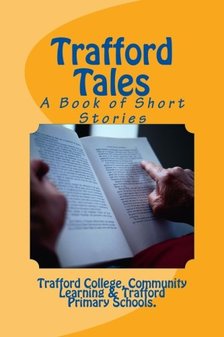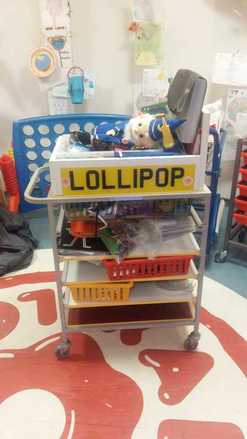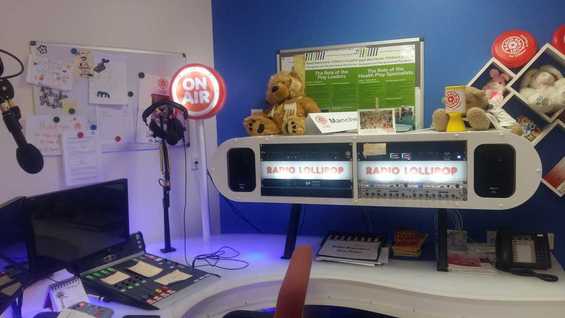Insights into Manchester Part 7: Trafford Tales, Shakespeare, and the Stories that Shape Us23/4/2018
Yesterday, I traveled to Stratford-Upon-Avon and had the chance to visit William Shakespeare’s birthplace and several of the properties where he lived over the course of his life. It was a stupendous day. As I strolled through the yards where the Bard of Avon once himself wandered, I remembered all of his stories that I have come to love and appreciate over the years. I grew up admiring Walter Crane’s Flowers from Shakespeare’s Garden and much of high school was spent pouring over Romeo and Juliet, Macbeth and the Tempest along with his sonnets. In university, I now realize that it is thanks to my teachers who introduced me to all of these stories that my love of stories has persisted. In the gallery of the Stratford museum, a quotation from the end of The Tempest greets visitors. It is taken from an exchange between Alonso and Prospero and reads simply: “I long to hear the story of your life”. From a very young age, we learn about stories. We learn to listen to them and we learn to tell them ourselves. We seek to understand them and we learn to write our own. From a very young age, knowing about stories – writing and reading them – can change a child’s life. In 2017, the Community Learning team at Trafford College in the Greater Manchester area invited local Trafford primary schools to participate in a Creative Writing project. Over the course of four weeks, parents got the opportunity to participate in a creative story-writing workshop alongside their children. They learned about how to get started, how to develop characters and how to create plot. The goal was to impart parents with the creative tools to continue supporting their children writing for pleasure at home. I spoke with Sarah Roiditis, an English tutor at the college and a member of the functional skills team who told me more about the initiative.  The project is called Trafford Tales and was created to help parents support children with their learning. As Sarah said, it not only “helped parents improve their own writing” but also “gave parents the opportunity to write their own story with the help of their child”. After the workshop concluded, children became published authors. With the tangible Tales, they got the chance to see their names printed and shared – who knows whether that precious proud moment could be the impetus for much more writing to come. Parents had the happiness of experiencing the rewards of the project in a more subtle way. Through the Trafford Tales, they had the chance to share a writing experience with their children in school and create a special time and memory with them. Maybe, through workshops such as these, we realize that we have the power to shape our stories. Maybe, we also realize that stories have the power to shape us. Parents have a marvelous influence in introducing their children to a love of stories. Effectively, parents who participate in workshops that encourage writing for children are raising readers. The Montreal Gazette published an article called, “Getting the word out about children's literature in Montreal” by Bernie Goedhart last November. In it, Goedhart speaks with Robert Paterson, a member on the board of the Knowlton Literary Festival Association, who emphasizes the importance of reading to the very young. Below is an excerpt from the article: “Children need to hear a lot of words by the age of two,” he said, noting that it’s crucial to the acquisition of language and vocabulary. “The wonderful thing about being read to as an infant is that you’re bathing that child in words. Parents are holding the babies in their arms and that touch is important — the touch, the words, and the culture of reading for pleasure.” Reading to children and introducing them to stories from a young age contributes greatly to stimulating their imagination and encouraging their natural creativity. Children and Parents reading and writing together can be even more beneficial. A decade ago, Literacy in Action and the Yamaska Literacy Council released a booklet entitled Learning with your Child. In it, they describe the multi-faceted role that parents have in raising readers. You can view it here. Eventually, children learn to read themselves and are imparted with the tools they need to write their own stories. And somehow, there isn’t a word to describe how valuable that is. However, it can be gleaned in the way we write the story of our lives. Earlier in The Tempest, Prospero famously says, “We are such stuff/As dreams are made on; and our little life/Is rounded with a sleep”. The more we read, the more we expose ourselves to different life stories. More often times than not, these stories expand our world view and help us realize the power we have as storied individuals. As we celebrate Shakespeare's birthday this week, let us remember his immortal words: We are such stuff as dreams are made on. And so the story goes. Support the Trafford Tales initiative and order your book copy here.
Covered in drawings and playful colors, I wondered what lay behind the door marked Radio Lollipop. I had walked into the Manchester Children’s Hospital earlier that morning to visit a friend volunteering in one of the hospital wards. In my explorations, I had come across the door and upon further exploration and curious questions to hospital staff, I was told to come back that evening to find out what lay behind it.  At 7:15pm that evening, I made my way back to the hospital. The hallways were considerably less crowded. I listened to all that could be heard: faint footsteps of lingering visitors and a distant vacuum noise cleaning the remnants of a long day. I rounded the corner and suddenly, the door was no longer closed. With happy expressions, a group of people in red t-shirts filed out of the Radio Lollipop room carrying balloons. Watching them felt energizing. I approached John, one gentleman in the group and he told me about Radio Lollipop. A volunteer for the past 22 years, he told me all about this incredible organization that encourages play through radio. Radio Lollipop brings together “volunteers providing care, comfort, play and entertainment for children and young people in hospital”. And I was lucky to catch up with him because volunteers of the organization are only in after hours. Below is part of my conversation with John. Gabrielle: What differences do you feel the presence of Radio Lollipop has made in the Manchester children’s hospital? Mr. Rogers once said, ”Play is often talked about as if it were a relief from serious learning. But for children play is serious learning. Play is really the work of childhood.” One of Radio Lollipop’s signature taglines is Serious Fun. Play and the positive impact it can have on the morale and creativity of children is something to be taken seriously. Another beautiful aspect of play for children is that it can be one of the best forms of therapy. Through play, a child can find security and stability. Experience has shown that a happy, motivated child can respond faster to treatment. Radio Lollipop initiatives “help normalize a young person’s day, support their psychological well being, and reduce the emotional challenges of a hospital stay” all through play and entertainment activities run by passionate volunteers.  The Radio Lollipop Trolley The Radio Lollipop Trolley When I’m listening to something I really connect with on the radio, I feel momentarily as though the people on air are speaking directly to me, even thinking of me, and responding to my ideas. That feeling of intimacy never loses its novelty. Every patient in Manchester’s Children’s Hospital has a radio next to their bed. At any moment, they can tune in, experience that same feeling of connectedness and know that they are not alone. Radio Lollipop is now in more than 30 hospitals in the UK, Australia, New Zealand, the US, and South Africa – working after hours and broadcasting the power of play on air 24/7. A service such as Radio Lollipop in Canada would be brilliant. Children possess an innate sense of curiosity that deserves to be encouraged and stimulated in all circumstances, especially in illness. The pursuit of curiosity leads to creativity and children deserve the freedom to pursue their ideas with their unabashed curiosity. In his article “Enhancing Creativity”, Raymond Nickerson describes the characteristic of “childlike naïveté” that is common among great scientists – including Albert Einstein. As Nickerson recounts, the famous logician Bertrand Russell once praised Einstein because he did not take familiar things for granted. In an interaction between Russell and Einstein, Russell noted Einstein’s expression of “surprised thankfulness” that four equal rods can make a square. It is dazzling to imagine Einstein marvelling over the components of a square because it is something that seems so commonplace. However, it is just the faith in those moments of surprised thankfulness that lead to the persistence and realization of creativity.  The innate playful curiosity that children keep and protect in their earliest years is often taken for granted. However, Radio Lollipop is a guardian for children and their parents in hospitals across the world, providing them with the tools to pursue their interests and desire for play regardless of the circumstances. Having worked with over 5 million sick children with over 100 000 hours of volunteer time every year, Radio Lollipop continues serving patients with an open door – encouraging children everywhere to play on. For more information on Radio Lollipop, visit their website Reference:
Nickerson, Raymond S. “Enhancing Creativity.” Handbook of Creativity, edited by Robert J. Sternberg, Cambridge University Press, Cambridge, 1998, pp. 392–430. |
CategoriesArchives
October 2023
|
|
Literacy Quebec
4590 rue de Verdun suite 206 Montreal, QC H4G 1M3 |






 RSS Feed
RSS Feed

